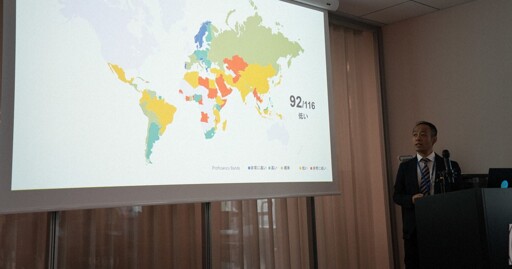Summary
Japan’s English proficiency ranking dropped to 92nd out of 116 countries, the lowest ever recorded.
The decline is attributed to stagnant English proficiency among young people, particularly due to the COVID-19 pandemic.
The Netherlands ranked first, followed by European countries, while the Philippines and Malaysia ranked 22nd and 26th, respectively.



True. Also doesn’t help when you sometimes mix up シ(shi) and ツ (tsu) because the font (or someone else’s handwriting) makes them look very similar.
Alignment/starting position is the key. The "-like strokes in shi are left-aligned, the "-like ones in tsu are top-aligned. Same for ‘so’ and ‘n’. This is why people talk about stroke order being important (although in this case it’s not simply the order).
I don’t know Japanese at all, but the way my phone renders those characters I can’t tell anything about stroke order, and can only tell them apart because they’re next to each other…
I imagine there might be larger differences with Japanese specific fonts, but with whatever this one is the difference seems about the same as using italics with Latin characters…
I can see the difference, but I think it takes practice. シ lines coming from left, line align with bottom left and ツ lines coming from top and all 3 roughly align at top.
Edit: maybe ctrl+f ‘Happy Lilac’ on this page and it may help: https://www.tofugu.com/japanese/katakana-chart/